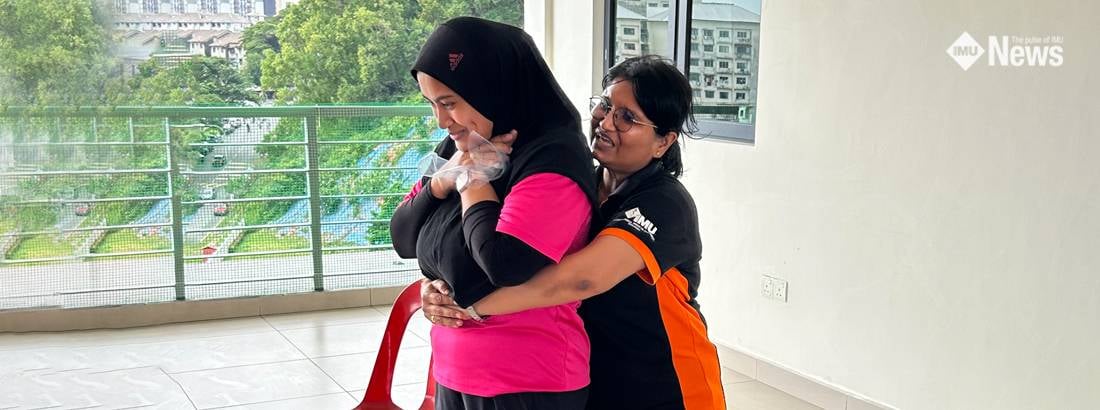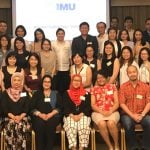On August 19, 2023, a team of lecturers from IMU‘s Divisions of Nursing and Applied Biomedical Science and Biotechnology (ABSB) from School of Health Sciences (SOHS) conducted a Basic Life Support (BLS) training for caregivers at the Ti-Ratana Welfare Society, Wilayah Persekutuan Kuala Lumpur.
This community service project aimed to promote good health and well-being by raising public awareness and instilling BLS skills that can help save lives during critical medical emergencies. The mission of IMU Cares was fully supported by this project, which contributed to the greater good of the community.
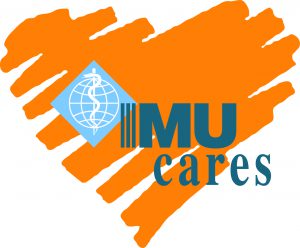
During our visit in June 2023, we suggested providing Basic Life Support (BLS) training to the caregivers at Ti-Ratana Welfare Society in Kuala Lumpur, a community partner of IMU. This recommendation holds significant importance because a considerable portion of the residents are elderly and may be at risk of facing medical emergencies.
A proposal was then submitted by the Division of Nursing to conduct Basic Life Support (BLS) training for caregivers was approved. Dr Radha A/P Maniam planned, organised, and led the project. Three certified BLS trainers from the Division of Nursing and two from ASBS volunteered to participate in the training. Additionally, a nursing faculty member and a human resources staff member also volunteered to assist.
Prior to the scheduled visit, the participants’ backgrounds were collected in order to prepare and supply suitable instructional materials. The teaching materials, checklists for skill assessment, pre and post-test assessments, and logistical arrangements were made based on the AHA Guideline 2020. Reading materials were shared with participants five days before the event day to help them better understand and prepare for the training.
During the visit, a session was held to break the ice between facilitators and participants. Dr Radha and Chow Suh Hing provided theoretical input, and the practical session was divided into four parts.
Practical Sessions
Adult Cardiopulmonary Resuscitation (CPR)
Infant CPR
Automated External Defibrillator (AED)
Choking Relief for Adults and Infants
A/Prof Dr Fabian Davamani Amalraj
Dr Lim Swee Geok
A/Prof Dr Lim Chooi Ling
Dr Radha A/P Maniam
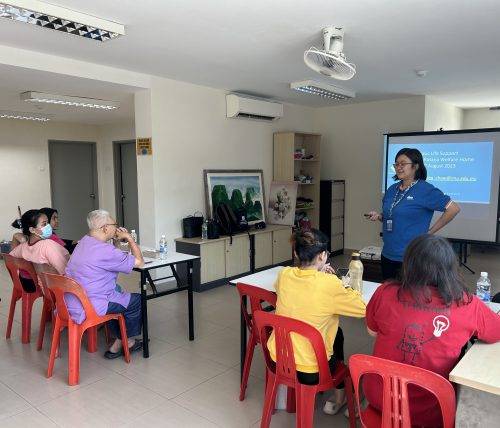
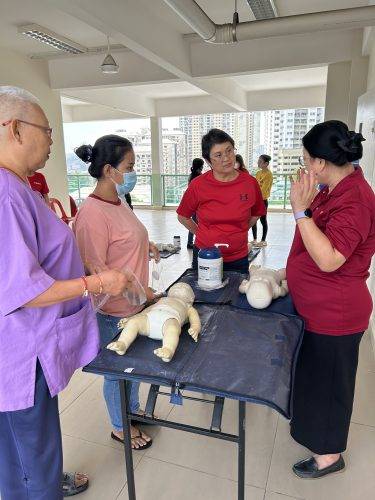
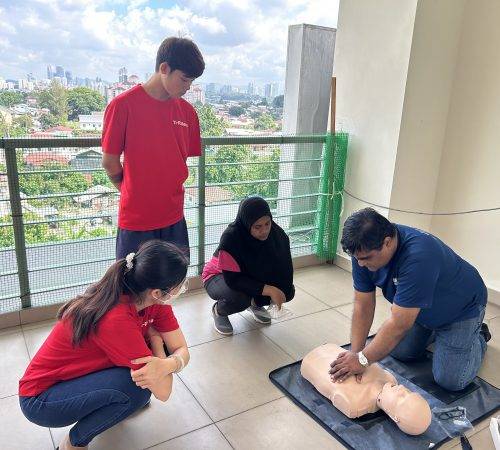
Participants were split into four groups and rotated to each station, where the facilitators demonstrated the skills followed by the participants engaging in hands-on practice.
After being taught adult and infant CPR and choking relief techniques, participants were evaluated on their skills. All participants successfully completed all the skill stations.
A post-test was administered to test their knowledge, and it was observed that all participants passed the test with scores ranging from 18/30 to 27/30. This demonstrated a significant improvement from the pre-test, where four participants had failed, and the scores were between 5/30 to 17/30.
Participants' Feedback
Feedback from participants indicated that they found the session enjoyable and beneficial, while breaking the skills into different stations helped them perform better. Overall, the training successfully raised awareness of the importance of BLS skills.
Ms. Judy, who oversees the Centre, expressed her enjoyment of the session, and suggested that it would be beneficial to have another BLS training for the rest of the staff. She even proposed inviting the surrounding community to join in on the training.
Ms Lizawati, a caregiver at the Center, stated that teaching various techniques at separate stations is beneficial. This method is not too messy and assists her in comprehending and retaining the steps more effectively.
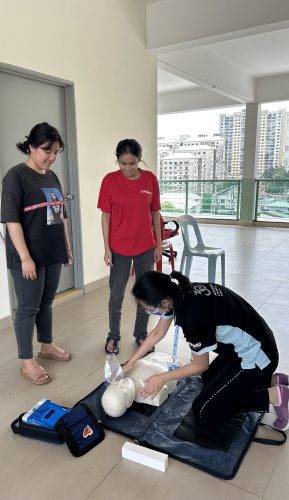
One of the team members, Ms Gan Hua Li, mentioned that although she was not a medical professional, she learned a considerable amount and suggested that the Human Resources Department staff should receive similar training in the future.
Written by Dr Radha Maniam




